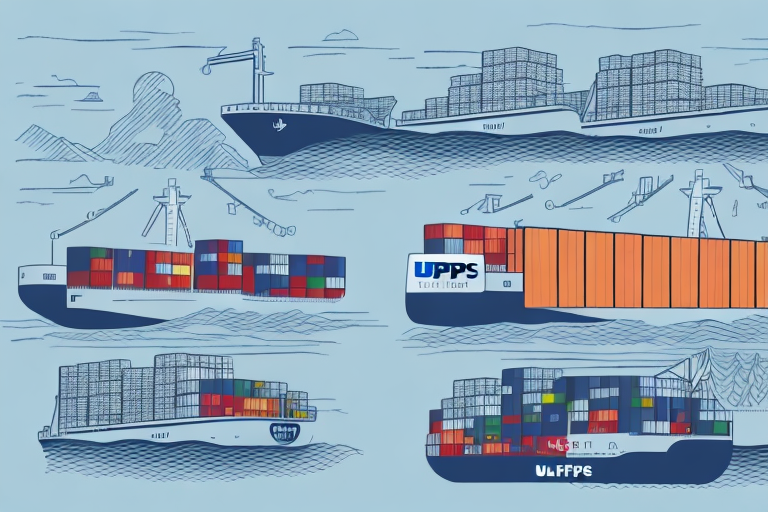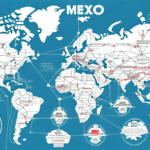Comparing UPS and FedEx International Shipping Rates
When it comes to international shipping, selecting the right provider is essential for businesses aiming to deliver their products globally in a timely, cost-effective, and reliable manner. Two of the most prominent shipping providers, UPS and FedEx, offer a comprehensive range of international shipping services tailored to businesses of all sizes. In this article, we'll compare the international shipping rates of UPS and FedEx, examining their features, benefits, and potential drawbacks to help you make an informed decision.
The Importance of Choosing the Right International Shipping Provider
International shipping involves multiple steps, including packaging, labeling, documentation, customs clearance, and final delivery. Selecting the appropriate shipping provider can significantly impact the efficiency and success of these processes, ensuring your packages reach international customers safely and on time. Both UPS and FedEx are globally recognized shipping giants offering various international services such as express, ground, freight, and specialized deliveries.
However, it's worth considering smaller, specialized international shipping providers that might better cater to specific business needs. These providers often offer more personalized services, including assistance with customs paperwork or specialized handling for fragile or oversized items.
Another critical factor is the provider's network and coverage. Providers with extensive networks and regional partnerships can offer faster and more reliable deliveries. Researching and comparing the coverage and capabilities of different providers ensures they can meet your specific shipping requirements.
Which Countries Do UPS and FedEx Ship To?
Both UPS and FedEx offer international shipping services to over 220 countries and territories worldwide. However, the availability of specific services and delivery times can vary depending on the destination. Before selecting a shipping provider, it's crucial to review their coverage maps and service availability to ensure they meet your shipping needs.
Be aware that some countries impose restrictions or prohibitions on certain items. Researching and complying with these regulations is vital to avoid shipment delays or rejections. Additionally, both UPS and FedEx provide customs clearance services to facilitate smooth cross-border deliveries.
Calculating International Shipping Costs with UPS and FedEx
Determining the cost of international shipping involves several factors, including package weight and dimensions, destination, shipping speed, and any additional services required. Both UPS and FedEx offer online tools that provide instant quotes based on these parameters. Additionally, setting up business accounts with UPS and FedEx can grant access to discounted rates and other benefits.
International shipping costs can fluctuate significantly depending on the origin and destination countries. Some countries may have strict customs regulations necessitating additional documentation or fees, increasing the overall shipping cost. It's advisable to research the specific requirements for each country to prevent unexpected expenses or delays. Both UPS and FedEx also offer shipping insurance options to protect against loss or damage during transit, which can influence the total cost.
Understanding the Different Shipping Options Available
UPS and FedEx provide a variety of shipping options for international shipments, including:
- Express Services: Fastest delivery times, ideal for urgent shipments.
- Ground Services: More cost-effective but slower, suitable for non-urgent deliveries.
- Freight Services: Designed for large, heavy, or bulky shipments requiring special handling.
- Specialized Deliveries: Catering to specific needs such as hazardous materials or perishables.
Additional services available include insurance, real-time tracking, and customs clearance assistance. It's important to note that available shipping options may vary based on the destination country and the type of goods being shipped. Always verify with the shipping provider and consult the destination country's customs regulations before selecting a shipping option.
How to Prepare Your Package for International Shipping
Proper preparation is crucial for successful international shipping. Here are key steps to prepare your package:
- Packaging: Use sturdy, durable materials to protect your items during transit. Both UPS and FedEx have specific packaging guidelines to ensure safety.
- Labeling: Clearly label your package with accurate addresses and include any necessary handling instructions.
- Documentation: Provide complete and accurate documentation, such as commercial invoices, customs declarations, and export licenses, to comply with international trade regulations.
Consider the destination country's customs regulations, as some nations restrict or prohibit certain items like food, plants, or electronics. Selecting the appropriate shipping method—air freight for speed or sea freight for cost-effectiveness—depends on your shipment's size and urgency.
Customs Clearance Procedures with UPS and FedEx
Customs clearance is a critical component of international shipping, involving the processing and verification of package contents by local customs authorities. UPS and FedEx have extensive expertise in customs procedures and offer various tools to assist customers:
- Automated Customs Systems: Streamline the clearance process.
- Customs Brokerage Services: Help navigate complex regulations and ensure compliance.
- Guidance on Required Documentation: Assist in preparing accurate and complete paperwork.
Different types of goods may require additional permits or certifications. Both UPS and FedEx provide guidance on these requirements, helping you obtain necessary documentation and avoid delays or additional fees. Understanding and adhering to the destination country's restrictions is essential for a smooth customs clearance experience.
Tracking Your International Shipment with UPS and FedEx
Staying informed about your shipment's status is crucial. Both UPS and FedEx offer advanced tracking tools that provide real-time updates on the location and status of your international shipments:
- Online Tracking Portals: Accessible via their websites.
- Mobile Apps: Convenient tracking on the go.
- SMS Notifications: Receive updates directly to your phone.
These tracking systems offer alerts for any delivery exceptions or changes, ensuring you and your customers are always informed. Additionally, both providers offer guaranteed delivery dates and money-back guarantees for certain international shipping options, enhancing reliability and customer satisfaction.
Delivery Times for International Shipments with UPS and FedEx
Delivery times for international shipments vary based on several factors, including destination, shipping speed, and the chosen shipping option. Generally:
- Express Services: Offer the fastest delivery times, often delivering within 1-3 business days.
- Ground Services: Slower but more economical, suitable for non-urgent shipments.
- Freight Services: Delivery times depend on the size and nature of the shipment.
Both UPS and FedEx provide estimated delivery times for their various shipping options, allowing customers to choose the best fit for their needs. Tracking your shipment helps you stay informed about its progress and any potential delays.
Evaluating the Reliability of UPS and FedEx for International Shipping
Reliability is paramount when selecting an international shipping provider, as delays or errors can impact your business's reputation and operations. Both UPS and FedEx are known for their extensive global networks and high standards of quality and customer service. However, reliability can be influenced by factors such as:
- Shipping Volume: High volumes can affect delivery times, especially during peak seasons.
- Weather Conditions: Adverse weather can disrupt shipping schedules.
- Local Infrastructure: Varies by region and can impact delivery efficiency.
Assess the reliability of each provider based on your specific shipping needs and conduct regular reviews of their performance to ensure they continue to meet your standards.
Customer Service Comparison: UPS vs FedEx
Effective customer service is crucial for resolving issues and providing support. Both UPS and FedEx offer robust customer service options:
- 24/7 Support: Available via phone, email, and online chat.
- Online Resources: Comprehensive FAQs, guides, and tutorials to assist with common queries.
- Dedicated Account Managers: Available for business customers to provide personalized assistance.
Both companies strive to provide responsive and helpful customer service, but the quality and availability of support can vary. It's beneficial to test their customer service channels to determine which provider best aligns with your support expectations.
Hidden Fees to Watch Out For When Using UPS or FedEx for International Shipping
While calculating the cost of international shipments, it's important to be aware of potential additional fees that can increase the total shipping cost. Common hidden fees include:
- Fuel Surcharges: Vary based on fuel prices and shipping volumes.
- Customs Fees: Applicable depending on the destination country's regulations.
- Handling Fees: Charged for special handling requirements.
- Oversize or Overweight Charges: Additional fees for packages exceeding standard dimensions or weight limits.
Reviewing shipping quotes carefully and understanding each provider's fee structure can help you avoid unexpected costs. Comparing the total estimated costs, including all potential fees, is essential for accurate budgeting.
Tips for Saving Money on International Shipments
International shipping can be costly, but implementing strategic measures can help reduce expenses:
- Consolidate Shipments: Combine multiple orders into a single shipment to save on shipping costs.
- Choose Economical Shipping Options: Opt for ground or slower shipping methods when time isn't a critical factor.
- Negotiate Bulk Discounts: Partner with shipping providers for volume discounts if you have substantial shipping needs.
- Accurate Measurements: Provide precise weight and dimension details to prevent additional charges.
- Minimize Additional Services: Use only necessary additional services to keep costs down.
Both UPS and FedEx offer various programs and discounts for businesses, such as loyalty programs, referral bonuses, and volume discounts. Leveraging these options can lead to significant savings on your international shipping expenses.
Case Studies: Real-Life Examples of Businesses Switching Between UPS and FedEx
Examining real-life examples can provide valuable insights into how UPS and FedEx compare in practical scenarios. For instance:
- Tech Solutions Inc.: Switched from UPS to FedEx to benefit from faster express shipping options, resulting in improved customer satisfaction and reduced delivery times.
- Global Fashion Co.: Transitioned from FedEx to UPS to take advantage of UPS's extensive ground network, leading to cost savings on non-urgent shipments.
These case studies highlight that the optimal choice between UPS and FedEx depends on specific business needs, shipping volumes, and desired service levels. Evaluating similar factors within your business can guide your decision-making process.
Conclusion: Which Provider is Best for Your Business's International Shipping Needs?
After a thorough comparison of UPS and FedEx's international shipping rates, features, benefits, and drawbacks, it's evident that both providers offer robust solutions for businesses aiming to expand globally. The best choice ultimately depends on your business's unique requirements, priorities, and budget. Consider factors such as delivery speed, reliability, customer service, coverage, and total shipping costs when making your decision. By carefully evaluating each provider's strengths and aligning them with your business goals, you can select the international shipping partner that best supports your growth and customer satisfaction.


















